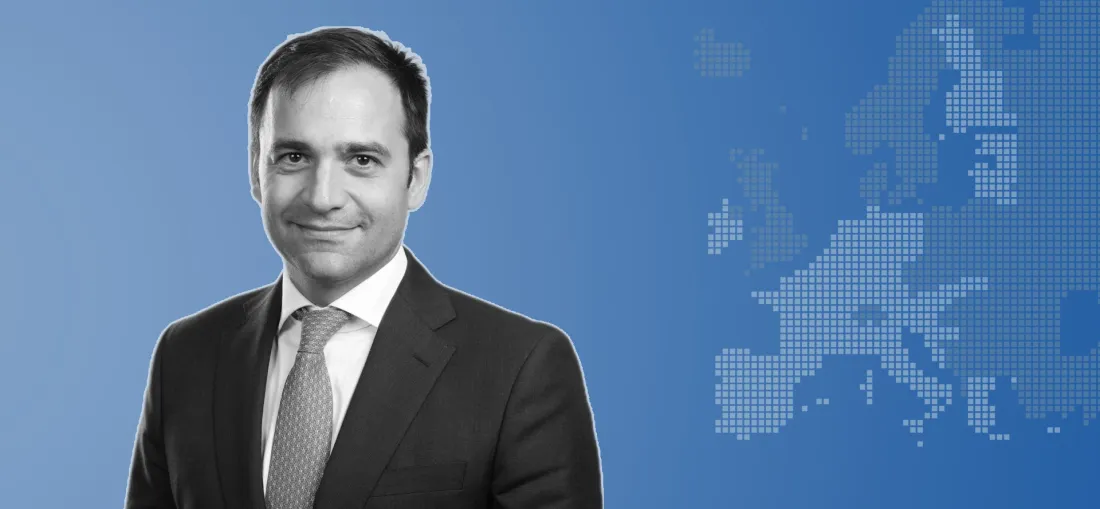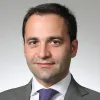Kalin Anev Janse in interview with South China Morning Post (China)

Interview with Kalin Anev Janse, ESM Chief Financial Officer
Published in South China Morning Post (China)
Conducted on 1 December 2023
Published on 5 December 2023
Interviewer: Orange Wang
What are the priorities in your schedule and agenda? What objectives do you expect to achieve?
Why we come here is because Asia has been incredibly important for us as an investor for the ESM.
In the early days, we had between 20 to 30 per cent of Asian investors. Now, around 13 per cent of our outstanding bonds are held by Asian investors. The commitment of Asia has been very big.
We came here to meet public and private sector investors but also to have institutional meetings with the authorities and some of the international financial institutions.
What is the role of the ESM in capital markets and how does the ESM work today? What do you think China and Asia can learn from the ESM's practice?
During the euro crisis a decade ago, we ensured that five countries successfully came out of the financial crisis.
Those countries - Portugal, Ireland, Spain, Cyprus and Greece - are now the reform champions but also the growth champions in Europe.
Today, we are there as an insurance. Market participants know that there's always a lender of last resort or precautionary instrument for countries so that they always will have access to financing.
We issue bills and bonds across the curve. Those instruments allow investors to buy safe assets in Europe. We are in the same group as the European Investment Bank and the European Union as an issuer.
We issue both in euro and in dollar. With us, you get the blended exposure to the 20 countries of the euro area.
What we saw in the euro crisis is that there was one missing element, that was a backstop to the markets, a lender of last resort if countries lost market access. And that was the moment the ESM was added to the architecture, and is now one of the key pillars.
In Asia, there is a willingness to have more Asian collaboration and more Asian financial integration.
The more you do that, the stronger the economy will go.
My key message for Asia is that Europe can be an example of how financial integration works and which institutions you need. Some of those might work also in an Asian perspective.
China has shown its dissatisfaction with the EU's "de-risking" policy, do you worry that this will affect what you aim to achieve on this trip?
We are an institution that is permanent and looks ahead further than political cycles.
What is for me very important is that at the start of the euro crisis, Asia, including China, made a very strong commitment to support Europe.
The first year when we went to the bond markets, 37 per cent of our bonds were bought by Asian investors.
That shows the commitment that Asia, including China, made to the ESM and the European project. This is something we will not forget.
This strong relation between Europe and Asia is also important for us as an institution.
China is now trying to get its own economy back on its feet, why would investors in China want to invest in the ESM at this stage?
Now we have three large economic and financial world powers, which are the US, China, and Europe.
Those three have to work together because we have seen that a lot of the wealth that was created in the world was because of globalisation, trade, and collaboration.
For me, that is a key element that we have to work together because it's good for our economies and it's therefore also good for our citizens.
I do see it is good to have an open relationship in terms of investments because Europe is also a strong market, for example, for exports from China.
A strong Europe also means more trade and more trade is good for both sides.
When we meet investors here [in Asia], they want to know how the economy of Europe is doing, how the different economies in different countries are performing. They're interested in what happens with the elections in different countries and the outcomes of that.
We give them comfort.
Europe is sometimes complicated to understand from outside. But it's such a strong economic firepower that it is super attractive for investors.
Given the current international economic and financial landscape, how can China and Europe work together to nurture global financial stability?
We have been working together in many different setups such as the G20, the IMF and the World Bank, but also in a new institution like the AIIB [Asian Infrastructure Investment Bank].
We've seen that 14 out of our own member states are also member states of the AIIB.
These are ways that we can collaborate in a multilateral world.
We as an institution always believed in this: if you work together globally, you have more peace and at the same time you also have more economic wealth.
Author

Contacts


